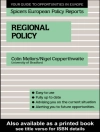In order to find a peaceful solution to the Kurdish question, the Kurdish Freedom Movement in Turkey has developed an alternative social model: Democratic Autonomy.
In the fall of 2011, a group of TATORT activists journeyed into the Kurdish regions of Turkey to learn how the theory of Democratic Autonomy was being put into practice. They discovered a remarkable experiment in face-to-face democracy—all the more notable for being carried out in wartime.
Since 2005, under the most difficult of conditions, the movement in North Kurdistan has created structures for a democratic, ecological and gender-liberated society. At its core is a system of councils in villages, cities, and neighborhoods. These structures do not yet offer a way of life that is fully independent of the nation-state and the market economy, but they nonetheless reveal a potent civil counter-power.
The interviews and documentation in this book provide thought-provoking glimpses into the practical implementation of a new left vision. The radical democratic awakening of the Kurds may serve as an inspiration for social change in the Middle East and elsewhere.
Tabla de materias
Translator’s Note
Foreword
Introduction: Democratic Confederalism
1. Councils Under Construction
2. The Kurdish Youth Movement
3. Economic Alternatives
4. Changing Gender Relations
5. Social Ecological Transformation
6. Education for a New Society
Glossary
Sobre el autor
Janet Biehl (1953-) is an author, copy editor, and graphic artist. Her latest work is ‘Ecology or Catastrophe: The Life of Murray Bookchin’ (2015).












